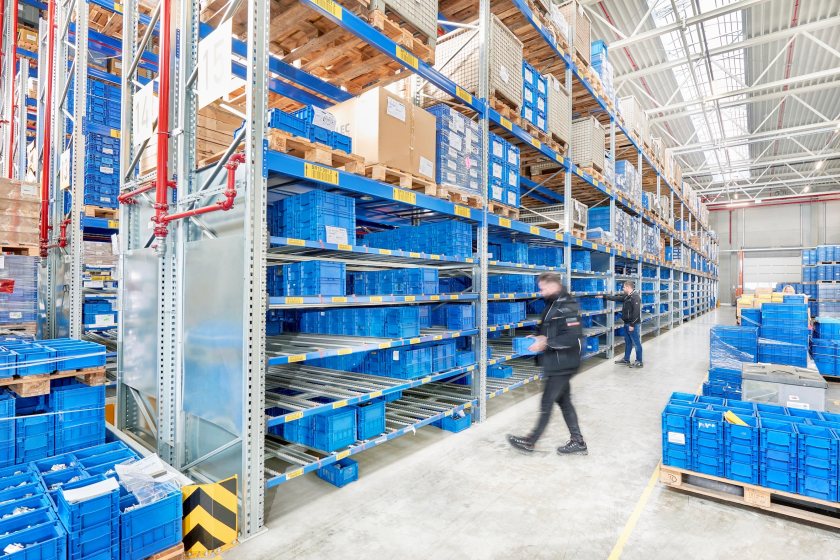
Modernisation of a warehouse can increase performance and service life. In this article, Edward Hutchison, Managing Director of BITO Storage Systems asks: have you considered retrofitting existing pallet racking?
As warehouses grow older, not only does the technology contained within wear out, incurring more regular downtime, it also naturally becomes outdated.
It makes sense to plan modernisation in good time, before a system or equipment reaches service life expiry.
For those concerned about the cost and convenience of a major replacement or modernisation programme, consider retrofitting.
Modernisation offers the opportunity to adapt intralogistics systems to meet new requirements and to make them more efficient and reliable.
This means maintaining the basic structure of a warehouse in terms of storage zones, layout, conveyor and storage systems, but modernising individual items of materials equipment and creating new processes.
This will increase performance and improve overall warehouse system availability. Sometimes the modernisation of a warehouse can even avoid the need to construct a new building or an expensive extension of an existing facility.
A retrofit is a refurbishment and modernisation of existing intralogistics systems. The advantages of retrofitting include lower planning and implementation costs compared to a new purchase or new installation.
The risk of failure is also reduced compared to completely new systems. Not only is modernisation in this way resource-friendly, but also employees can continue to work in the existing facility for as long as possible.
There are many individual areas that can benefit from retrofitting - one important area to focus on is picking operations.
If a picking system no longer proves efficient and ergonomic, a company must be able to react quickly to adapt their existing storage system to the new conditions.
Given that most warehouses have pallet racking as their major item of materials handling equipment, this presents a great opportunity for modernisation, with a number of picking options that can be retrofitted in pallet racking at ground level, which is the prime order picking area.
BITO pallet racking has been designed to allow fast adaptation to different needs, providing customers with a maximum amount of flexibility.
There is a vast range of accessories and ancillary products, which allows many easy-to-implement reconfiguration variants.
For example, by fitting flow levels at floor height, pallet racking can be adapted for picking individual packaging units or single items whereas the pallet storage levels on top are used as a buffer store.
Retrofitting options for pallet racking include drop in sections of roller tracks for unit or piece picking, push-back roller track levels also for unit or piece picking, full-width roller lanes for pallets, container pick walls, shelving, drop-on wire shelves, chipboard panel decking, inclined shelving and steel panel decking.
These options provide numerous advantages such as a substantially higher number of reference lines, shorter travel routes, reduced pick times, maximum configuration flexibility and excellent ergonomic conditions for strain-free working.
Of course, modernisation does not result in a new warehouse, but it will bring it up to date and extend its service life.
The project will involve investment, a detailed concept and preliminary planning. The new components have to be coordinated with the existing ones.
It is also important to ensure that existing components are not overloaded by the performance of the new ones, which might cause them to fail.
The implementation of retrofitting measures during ongoing operation must also be planned in detail so that warehouse operations are not disturbed or even interrupted.